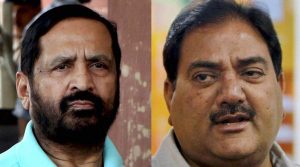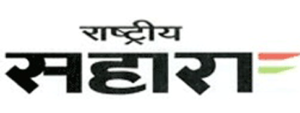
30-12-2016 (Important News Clippings)
To Download Click Here
India Must Stop Gushing

Insatiable cities compete for water through pumps at every household, and a fierce rivalry of horsepowers renders the designed hydraulics of the city redundant. Rise in population density, along with a poor understanding of the economic nature of water, has resulted in faulty policy framework or retrograde management practices in the supply.
Political expediency in the developing world has treated water as a public good and has largely remained averse to an independent regulation. A public good is inherently non-rivalrous and non-excludable. Non-rivalrous in the sense of the good by one person doesn’t limit its use by someone else, and non-excludable in the sense of nobody being excluded from its use. So, water is not a public good in a strictly economic sense.
The prevailing situation demands that it needs to be treated as a limited precious commodity to be distributed among the entire population equitably and efficiently. But the retrograde pricing mechanism that removes safeguards against irresponsible and irrational use by consumers, coupled with the natural right of every user, makes urban water supply a unique problem. This is identified by economists as a ‘common pool resource’ problem. Sound management of urban water supply to solve this problem depends on four fundamental principles: progressive pricing, effective metering, universal pipe connectivity and independent regulation.
Municipal managers treat water as a public commodity that has made customers accustomed to either free water or at an abysmally low price. The absence of any economic deterrent against the irresponsible use of water results in huge wastage of water. Most utilities do not have a cost accountancy section in their administrative set-up. So, neither the cost reduction of various operations is highlighted, nor do financial decisions follow the cost-benefit analysis.
A vicious cycle of poor service and poor cost recovery sets in. Cost recovery is closely linked to the accounting of water, which is possible only in an accurately metered utility.Water utilities in India are mostly unmetered. Not only are consumers unmetered, but the entire distribution and transmission network lacks good quality electronic meters that can be used to set up a Supervisory Control and Data Acquisition (Scada) system. The first step has to be the installation of credible meters everywhere.
In the field of water metering, there have been many radical developments. South Africa has tested prepaid meters, but this has largely failed. Prepaid meters are illegal in Britain. In Delhi, the common complaint has been that water meters run with air pushed by water before the commencement of supply. As every household has a motor to suck water from the distribution network, the problem gets aggravated.The solution is either elimination of all home motors or the installation of costly ultrasonic meters. Proper accounting of water through sound metering systems must pave the way for equitable distribution of water too.
Equity is a big problem in water distribution. Urban planning has historically been found wanting in catering to the ever-increasing population growth. Slums are formed without provision for any basic amenities. Water is supplied here through tankers or public hydrants. But the water requirement of these families is hardly met. These families end up paying a higher price to the water mafia. The only solution is taking the water supply to each household in these colonies.
Finally, the entire water supply operation and management have to be independently regulated. In the developed world, urban water supply systems have carefully followed the route taken by another utility sector: electricity. Chile and Argentina introduced the first reform movement in the power sector, the ‘Southern Cone’ model. This provided for not only the unbundling of the original company and creating competition at the distribution level, but also for the setting up of an independent regulator.
The largest gain in the water sector comes from the independent regulatory system. Experiments to create competition at the distribution level have largely failed. But all successful water sector distribution reforms have created independent regulators. Britain has gone to the extent of privatising regulation. This has been fairly successful. In India, however, not a single water utility has created an independent regulator. Gujarat is the only state moving towards partial regulation. In the end, state governments have to move forward and create independent regulators to increase the efficiency of operations.
Keshav Chandra The writer is CEO, Delhi Jal Board
सुर्खियों में रहे चर्चित मामले पर वही पुरानी अदालती तस्वीर आई सामने
खत्म होते इस साल में न्यायपालिका के फैसलों ने समाचारों में खूब सुर्खियां बटोरीं। मगर ऐतिहासिक और महत्त्वपूर्ण फैसलों के पैमाने पर देखा जाए तो यह वर्ष उतना प्रभावी नहीं रहा। सुर्खियों वाले कुछ मामलों में न्यायाधीशों का मौखिक अवलोकन और अंतरिम आदेशों को देखते हुए लगा कि उनमें से कुछ ही बाध्यकारी या महत्ता के लिहाज से तार्किक निर्णय हैं, जैसा कि राष्ट्रगान से जुड़ी याचिका के मामले में हुआ।
Statesmanship at Pearl Harbour
Conspicuous gestures of reconciliation between nations to heal the deep emotional wounds of wars will have connotations that go beyond the symbolic. Japanese Prime Minister Shinzo Abe, through his visit to Pearl Harbour this week, and U.S. President Barack Obama, with his homage at the peace memorial at Hiroshima earlier in May, have undertaken this bold and difficult journey on behalf of their peoples more than 70 years after atrocities were committed against each other during World War II. That so much time should have been lost in both instances to put the painful past behind them only speaks to the powerful presence of nationalist sensibilities that invariably distort the moral force of reconciliation. That this should have occurred only now, despite the enduring economic engagement of several decades between Washington and Tokyo, merely underscores their ticklish nature and the strong political overtones involved. In the case of Japan, the conservatives have long regarded any attempt to own up the slaughter of hundreds of U.S. marines at Pearl Harbour in 1941 as nothing but a betrayal of the national interest. In fact, in comparison, earlier visits to the naval base by Japanese leaders were relatively low-key affairs.
As for Washington, veterans of the war have seen little justification in the claim that the devastation caused by the twin nuclear bombings had to be condoled. In their view, the horror in Hiroshima and Nagasaki brought the war to a close sooner than it might otherwise have been. They have also sought to repudiate the narrative that the dropping of the atom bomb was a calculated demonstration of U.S. and western military superiority in a Cold War scenario. These competing nationalistic accounts have possibly helped the current generation in the two countries to see such views with a healthy dose of scepticism. Messrs Abe and Obama have displayed a statesmanlike readiness to rise above partisan accounts, emphasising instead the need to bridge the gulf that neither history nor geography could have narrowed. President-elect Donald Trump’s pre-election rhetoric painted a picture of Japan as a nation that ought to be prepared to invest more in its own defence. The favourable public opinion in both countries towards each other will possibly prove critical in consolidating upon the current strengths in the economic partnership and weathering the uncertainties of the future. Prime Minister Abe and President Obama have shown how history can be revisited in a realistic manner. It remains for countries grappling with their own complex pasts to draw the right lessons from this.
Bad sports
Kalmadi-Chautala controversy is a distraction from the issues India’s sports administration urgently needs to address.

Indian sport had plunged into a similar quagmire soon after London’s six medals — with sport associations playing out factional wars publicly to the bemusement of athletes. Someone even called the IOA a mere “post office” — with their utility reduced to forwarding names to international events, given that the Sports Authority of India disburses all the funds. Dipa Karmakar proved how national federations — especially the poorly run ones — were rendered irrelevant by doing her own thing and winding up a historic 4th in an Olympics gymnastics final. Still, sporting progress needs systems, and federations will need to be slapped back into shape.
The starting point should be the umbrella body that met up in Chennai and thought nothing of the backlash they would attract by including tainted names. The jury is still out on whether politicians ought to run sports and if athletes are qualified to do the backroom work. If someone is suitable to run the country, they ought to be suitable to run sports. Still, India has seen mixed results, and there’s no conclusive demarcation except a minimum requirement of keeping out the brazenly corrupt. India’s Olympic sports, though, need to start demanding administrators whose systems will deliver medals. As of now, the sports ministry seems content with qualifying the maximum number of athletes for the Olympics, and then hoping and praying that medal counts will go up automatically. Unfortunately, in the middle of this comes the announcement of the IOA’s largesse to Kalmadi and Chautala. The sports ministry will now waste all its energy quelling the organisation’s mischief, and sports lovers too will be distracted outraging over the needless muddle.
ज्यादा कारगर होगा बेनामी संपत्ति पर हमला
अगर प्रधानमंत्री की बात पर विश्वास करें, तो अगला वर्ष बेनामी संपत्तियों के खिलाफ प्रहार का वर्ष हो सकता है। बेनामी संपत्तियों के खिलाफ कार्रवाई करना काले धन को खत्म करने की सबसे बड़ी शर्त है। यही वह ठिकाना है, जहां काली कमाई खपाई जाती है, या दूसरे शब्दों में कहें, तो उसका निवेश होता है। अंत में चीजें कैसे आकार लेंगी, यह अभी नहीं कहा जा सकता, पर नोटों की वापसी से जितनी परेशानियां आम जनता को हुईं, उस तरह की परेशानी शायद बेनामी संपत्ति के खिलाफ कार्रवाई में नहीं होगी। बेनामी संपत्ति के खिलाफ कार्रवाई के निशाने पर वे बड़े लोग आएंगे, जिन्होंने गलत तरीके से धन कमाकर किसी दूसरे के नाम पर संपत्ति खरीद रखी है।
बेनामी संपत्ति का मतलब ऐसी संपत्ति से है, जिसका मालिक कागजों पर कोई और है, जबकि उसके लिए भुगतान किसी और ने किया है। काली कमाई करने वाले लोग बेटा-बेटी, पति-पत्नी या किसी अन्य विश्वासपात्र के नाम पर ऐसी संपत्ति खरीदते हैं, लेकिन इसकी घोषणा वे आयकर रिटर्न में नहीं करते। यानी अज्ञात आय से दूसरे के नाम पर खरीदी गई संपत्ति या किया गया कोई निवेश बेनामी संपत्ति में गिना जाता है। इसमें कई प्रकार की चालाकियां बरती जाती हैं। जैसे, दूसरे के नाम पर रजिस्ट्री करवाकर उस संपत्ति की वसीयत बनवा ली जाती है। इसमें वही व्यक्ति वारिस बन जाता है, जिसने खरीदा है। कई बार वसीयत के साथ बेनामी मालिक से एक ‘पावर ऑफ अटर्नी’ करवाई जाती है। इस तरह वह उस संपत्ति को बेचने का हक दूसरे को दे देता है। कई बेनामी मालिकों से संपत्ति की सेल-डीड भी बनवा ली जाती है। इस तरह, काला धन रखने वाले बिना अपना नाम उजागर किए अपने पैसे से संपत्ति खरीदते हैं, उस पर कब्जा रखते हैं और गलत तरीके से अपना अधिकार भी बनाए रखते हैं।
अगर किसी ने आय के ज्ञात स्रोत से किसी के नाम कोई संपत्ति ली है, या निवेश किया है, तो वह बेनामी संपत्ति के अंदर नहीं आ सकता। एक अध्ययन के अनुसार, भारत के ज्यादातर शहरों में पांच से 10 प्रतिशत संपत्ति बेनामी है। यह सिर्फ एक अनुमान है। ऐसी संपत्ति इस आकलन से कहीं ज्यादा भी हो सकती है। शहरों में ही नहीं, गांवों में भी ऐसी संपत्ति बड़ी तादाद में खरीदी जा रही है, जिनका इस्तेमाल कृषि के नाम पर काले धन को सफेद करने के लिए भी होता रहा है।
संसद ने इस साल अगस्त में बेनामी संपत्ति लेन-देन रोकथाम कानून बनाया है। यह कानून 1988 के कानून से काफी सख्त है। इसके तहत आयकर विभाग को इन संपत्तियों को जब्त करने और उसे रखने वालों से 25 प्रतिशत तक जुर्माना वसूलने का अधिकार है। इस कानून में आरोपी की तत्काल गिरफ्तारी का प्रावधान नहीं है, लेकिन अपराध साबित हो जाने के बाद अदालत उसे सात साल तक की सजा सुना सकती है। जान-बूझकर गलत सूचना देने वाले को पांच साल की सजा हो सकती है और संपत्ति के बाजार मूल्य का 10 प्रतिशत जुर्माना भी उसे देना होगा। आयकर विभाग को ‘पावर ऑफ अटॉर्नी’ के जरिये खरीदी-बेची जा रही सभी संपत्तियों पर नजर रखने को कहा गया है। फिलहाल 200 टीमों का गठन किया गया है, जो देश भर में बेनामी संपत्तियों की जांच करेंगी। इनमें खासतौर पर वाणिज्यिक प्लॉट्स, हाई-वे के किनारे की जमीनें और औद्योगिक जमीनें शामिल हैं।
इन सबके बावजूद यह काम इतना आसान भी नहीं है। बेनामी संपत्ति रखने वालों में मुख्यत: करोबारी, राजनेता, नौकरशाह और प्रवासी भारतीय हैं। इनकी पहुंच और इनके प्रभाव का विस्तार बहुत दूर तक होता है। ऐसी चीजों को कानूनी दांव-पेच में फंसाना भी वे अच्छी तरह जानते हैं। फिर जिन विभागों को कार्रवाई करनी है, उनके अंदर भी काला धन और बेनामी संपत्ति रखने वाले निश्चित तौर पर होंगे। वे स्वयं को बचाने की कोशिश करेंगे या कार्रवाई करेंगे? फिर, हमारे यहां भूमि का रिकॉर्ड भी अनेक जगहों पर अस्पष्ट है। यह भी एक बाधा है। हो यह भी सकता है कि कुछ ऐसे लोग इस चक्कर में फंस जाएं, जिनका कसूर सिर्फ इतना हो कि वे विश्वासपात्र थे, इसलिए उनके नाम पर संपत्ति की खरीद की गई। इन सभी जटिलताओं को समझकर अगर आगे बढ़ा जाए, तो काले धन पर एक बड़ा और कड़ा प्रहार किया जा सकता है।
(ये लेखक के अपने विचार हैं)
अवधेश कुमार, वरिष्ठ पत्रकार
आरोपों के बावजूद
आईओए की दलील न केवल बेदम है, बल्कि अपने बेजा काम पर परदा डालने की नाकाम कोशिश भी है।
भारतीय ओलंपिक संघ (आईओए) ने हैरतअंगेज फैसला किया है। उसने अपने अध्यक्ष एन रामाचंद्रन की मौजूदगी में बाकायदा डेढ़ सौ सदस्यों की सहमति से भ्रष्टाचार के आरोप में चर्चित रहे अपने दो पूर्व अध्यक्षों- सुरेश कलमाड़ी और अभय सिंह चौटाला- को संघ का आजीवन अध्यक्ष चुन लिया। संघ की ओर से सफाई दी गई कि पूर्व अध्यक्षों को आजीवन अध्यक्ष बनाने की परंपरा है। हालांकि उसकी आधिकारिक वेबसाइट इस तर्क को खारिज कर रही है, क्योंकि उसमें बताया गया है कि इससे पहले केवल विजय कुमार मल्होत्रा को आजीवन अध्यक्ष चुना गया था। आईओए की दलील न केवल बेदम है, बल्कि अपने बेजा काम पर परदा डालने की नाकाम कोशिश भी है। क्या परंपरा के नाम पर किसी आरोपी या दागी को इज्जत बख्शने या सहूलियतें देने को जायज ठहराया जा सकता है? यह सब तब हो रहा है कि जब अभी बीसीसीआई के मामले में सुप्रीम कोर्ट राजनीतिकों और कारोबारियों को खेल से दूर रखने की हिदायत दे चुका है।
ये दोनों व्यक्ति तो सीधे-सीधे भ्रष्टाचार के आरोप से घिरे हैं। राष्ट्रमंडल खेलों में सत्तर हजार करोड़ रुपए का घोटाला चर्चा का विषय रहा था। उस मामले में मुकदमा दर्ज होने के बाद कलमाड़ी दस महीने जेल में रहे और फिलहाल जमानत पर हैं। 2011 में एक विकीलीक्स खुलासे में कहा गया था कि स्विस बैंक में उनके 5,900 करोड़ रुपए जमा थे। 2012 में दिल्ली उच्च न्यायालय ने तो उन्हें लंदन में ओलंपिक ओपनिंग समारोह में जाने से रोक दिया था। अदालत का कहना था कि उनके वहां जाने से देश को लज्जित होना पड़ेगा। अभय चौटाला पर आय से पांच गुना अधिक संपत्ति का आरोप है। हद तो यह है कि इन्हीं चौटाला की वजह से अंतरराष्ट्रीय ओलंपिक समिति (आईओसी) ने आईओए की सदस्यता ही निलंबित कर दी थी, क्योंकि उसने आरोपी व्यक्ति को मैदान में उतारा था। बाद में आईओसी ने आईओए की सदस्यता तब बहाल की, जब उसने अपने संविधान में संशोधन कर यह पक्का किया कि आगे से कोई आरोपी या दागी उम्मीदवार को चुनाव लड़ने की अनुमति नहीं दी जाएगी। यानी जिस व्यक्ति को स्वयं आईओए और आईओसी चुनाव लड़ने के काबिल नहीं समझती, उसे आजीवन अध्यक्ष बना दिया गया। क्यों?
दरअसल, खेल संघों में राजनीतिकों और पूंजीपतियों की पैठ काफी गहरी है। वजह है उनकी अपार दौलत और संबंधों की ताकत। यही वजह है कि लोकनिंदा की भी परवाह न करते हुए तमाम न्यस्त स्वार्थों वाले लोग उनके समर्थन को तैयार हो जाते हैं। इससे यह भी पता चलता है कि आरोपियों के हाथ कहां-कहां तक पहुंचे हुए हैं। हालांकि कलमाड़ी और चौटाला के चुनाव के बाद खेलमंत्री विजय गोयल ने कहा कि यह स्वीकार्य नहीं है है और सरकार से बड़ा कोई नहीं है। उन्होंने आईओए के अध्यक्ष से इसकी विस्तृत रिपोर्ट मांगी है और वादा किया है कि उसके बाद कार्रवाई की जाएगी। बेहतर यही होगा कि इस बारे में समुचित कार्रवाई हो। और खेल मंत्रालय को भी चाहिए कि इस तरह की प्रवृत्तियों पर रोक लगाने के लिए सभी खेल संघों के लिए आचार संहिता तैयार करे। केंद्र सरकार को अपने सफाई अभियान को थोड़ा खेल संघों की तरफ भी मोड़ना चाहिए।
खेल में कैसा ‘‘खेल’
खेल संस्थाओं में किस कदर ‘‘खेल’ हो रहे हैं, यह भारतीय ओलंपिक संघ (आईओए) में अचानक हुई नियुक्तियों से समझा जा सकता है। दो दागी और आपराधिक मामलों में दोषी पाए गए भारतीय ओलंपिक संघ के पूर्व अध्यक्ष सुरेश कलमाडी और अभय सिंह चौटाला को आजीवन संघ का अध्यक्ष नियुक्त करने के फैसले ने खेल जगत को हैरानी में डाल दिया। आश्र्चय की बात है कि इन दोनों खेल प्रशासकों को भ्रष्टाचार के आरोपों के चलते संस्था से बाहर होना पड़ा था। विडम्बना है कि इन दोनों को फिर से पद पर बिठाने के फैसला अचानक और निर्विरोध लिया गया। यहां तक कि किसी ने भी इस सिफारिश के खिलाफआवाज नहीं उठाई।
हालांकि, खेल मंत्री के सख्त रुख से कार्रवाई की संभावना बढ़ी है। दरअसल, खेल संघों पर काबिज होने के लालच ने भारत में खेल को बेहद दीन-हीन बना दिया है। करप्ट लोगों का स्पोर्ट्स बॉडी का बॉस बनना यह बताने के लिएकाफी है कि खेल को हम कितनी गंभीरता से लेते हैं? वैसे, अगर देश में खेल संस्थाओं के मुखिया पर नजर डाली जाए तो इसमें खिलाड़ी नाममात्र के जबकि राजनेता बहुतायत में मिल जाएंगे। किसी और मुल्क में खेल के साथ ऐसा ‘‘खेल’ नहीं होता होगा। 125 करोड़ की आबादी में उंगली में गिनने लायक खेल प्रतिभाएं हमारे देश में है। और यह सिर्फ-और-सिर्फ खेल में सियासत के घालमेल की वजह से है। ऐसा नहीं है कि यह सिर्फ ओलंपिक एसोसिएशन की ही बात हो। चाहे क्रि केट लें, या फिर फुटबॉल, हॉकी, बॉक्सिंग, कुश्ती, तीरंदाजी वगैरह-वगैरह।
सभी खेल संस्थाओं के मुखिया किसी पार्टी का नेता ही क्यों होता है? चूंकि, इस समय मोदी सरकार खेल को लेकर ज्यादा गंभीर दिखती है, सो अब यह उनके हाथ में है कि खेल संघों का नेतृत्व कौन करे? कलमाडी और चौटाला जैसे प्रकरण तो काफी छोटी घटना है। अगर देश में खेल के स्तर को उन्नत और समृद्ध करना है तो खेल संघों पर काबिज राजनेता और नौकरशाहों को तत्काल बाहर करना होगा। सरकार को इन ‘‘कथित खेलप्रेमियों’ से पीछा छुड़ाकर ही बेहतरीन खिलाड़ी पैदा किए जा सकते हैं और खेल की दुनिया में अपनी धमक भी दिखाई जा सकती है। सो, संघों की कमान अब पूर्व खिलाड़ियों के हाथों में सौंपने का वक्त आ गया है।




